My Media Journey: It is Important to Show What You’re Capable of, Especially as a Female in this cut-throat Profession – Lolade Nwanze
Lolade is a formidable name within the Nigeria Media landscape, especially in a job where men have long stamped their career DNA. Her expertise cuts across the entire gamut of the media ecosystem. More recently, her career trajectory has taken her to the frontiers of Public Relations in the UK market as a Senior Account Manager at a Public Relations firm as she warms up to seize the day as is her usual style.
In this Exclusive Edition on Nigerian Women in Media Project Series by LightRay Media, we travel with her going back in time to her remarkable journey into the media and more. She tells us how bots are writing and reading stories to audiences, today, courtesy of AI. Is the new digital frontier going to be a tougher professional environment for media practitioners? Sit back and pop some corn while you enjoy the read.
At what point did you know journalism was going to be your passion and career?
It began with writing and the love for reading literature books even though I later chose Science class. Throughout secondary school, I was a member of the Press Club, and in JSS3, I delivered the news bulletin on the assembly ground before the entire school. I gained the nickname ‘killer beans’ because of one of the stories I told and tasted a bit of fame for a short time. I adored newscasters and was convinced print journalists were from another world just because of their use of English language but still didn’t ‘know of’ journalism. I went about studying other science-related courses at the university before I found myself at the Nigerian Institute of Journalism (NIJ), Lagos, where I found what I had been looking for.
During the course of your professional growth, when did it occur to you that your career was no longer just a job you showed up to? How did you pivot or even change the course of your career?
The Provost of NIJ at the time, Dr. Ikem, always said ‘Journalism is a doing profession.’ I sought every opportunity to ‘do’ it and I loved the newsroom at Vanguard newspapers where my career kicked off first as an intern. I loved the rush of deadlines, it motivated me to do. I started out reporting crime and I remember when I went to investigate my first crime story on the outskirts of Lagos, I almost got beaten up but I knew I couldn’t return without a story. This was 2007 when reporters would live or die by the deadline. I loved going to the field, interviewing people with my midget, coming back to the library to transcribe on off-cut papers because the newsroom is buzzing with activities and there were not enough desktops for junior reporters or interns. I loved to craft the stories out of the interviews, see the pages planned, see my face and byline on my column, and then wait for the next day/days when the newspaper will be accessible to the public. It was so fulfilling being a part of that Fourth Estate – I felt privileged. Journalism was never just a job for me, it gave me meaning.
Any struggles you experienced during the early stages of your career you’ll like to share and how did you overcome them?
I was blessed in many ways. The fact that I started ‘young’ meant that I didn’t have the money pressure most journalists faced due to poor wages. I didn’t have bills to pay – rent, school fees, parents/offspring upkeep, debts…none of such. I only had to take care of myself and at a point, I moved to family and then a friend’s house just to be closer to Kirikiri in Lagos which is where Vanguard Newspapers is located. This means I could really focus on being the best in my field.
I was mentored by the late Ogbonna Amadi, Vanguard’s Entertainment Editor, who chanced upon an interview I had left unattended to on a desktop. That relationship helped me to navigate the male-dominated newsroom and other politics even as he whipped my classroom writing into professional shape. The struggles then were probably the absence of solid peer relationships, direct mentoring and my ignorance of opportunities that could have helped me dream bigger quickly.
Do you still have any current challenges you’re trying to overcome?
It’s been 17 years and a lot has changed in the world, not only in media. The main challenges of today are with keeping up with technology while emphasizing to younger creators with a platform that journalism is serious business with principles and shouldn’t be trifled with. The democratisation of media means the gatekeeper’s role is almost non-existent hence a lot of ‘newcomers’ are not grounded. Platforms and access are democratised hence sifting through the ‘noise’ to identify and recognise proper journalism is today a big struggle – even bots are writing and reading stories to audiences, today, courtesy of AI. It’s a tough environment these days.
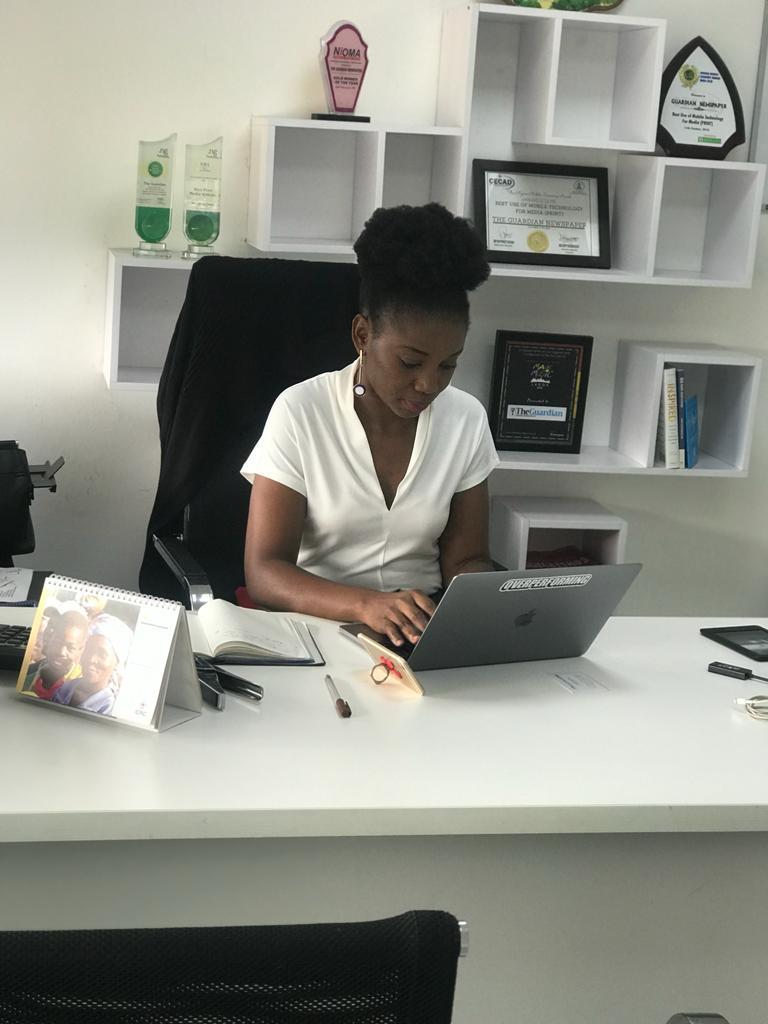
Lolade Nwanze at her desk: “Journalism was never just a job for me, it gave me meaning . . . I have learnt that it is important to show what you’re capable of, especially as a female in this cut-throat profession.
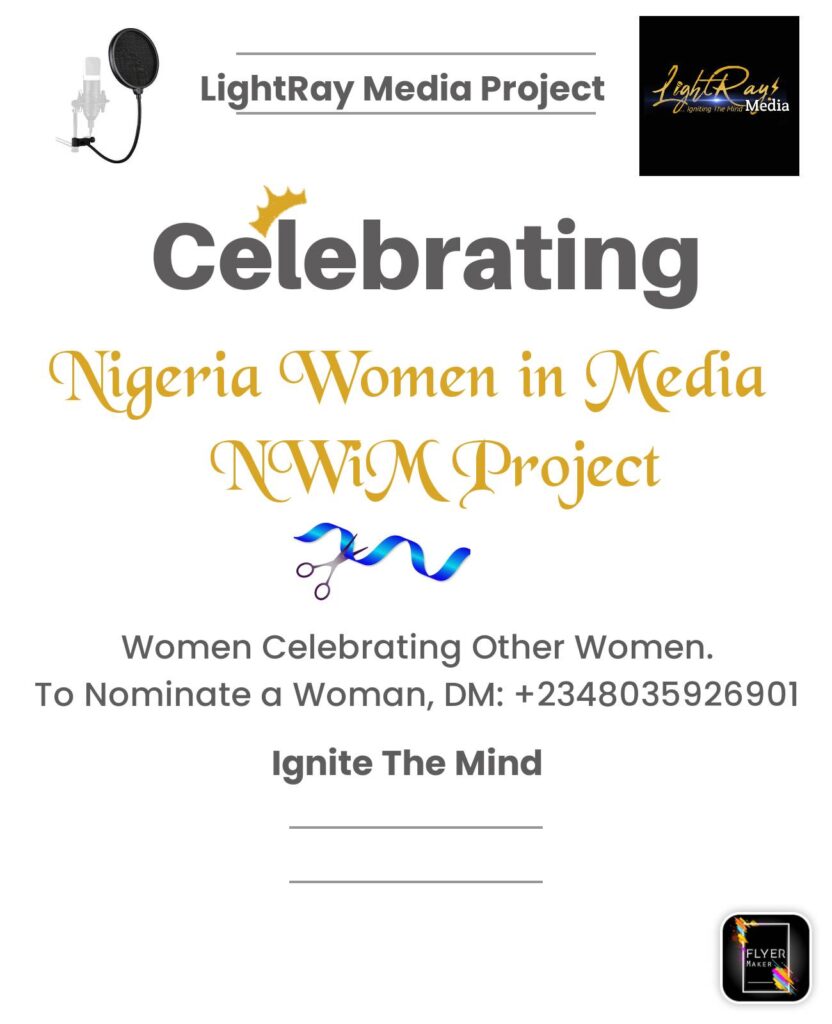
What are some of the barriers you think has prevented you from hitting the career target you’ve set for yourself?
I was content writing for the platforms I have and I never was one to set lofty goals. I’m one of the few journalists who actually enjoy the process of news/story development and was never in a hurry to move to the next thing. I was very fulfilled working in the newsrooms I did. I am also blessed to know when it’s time to move to something else – such has been the trajectory of my life. My career began in Print and has taken me through Broadcasting, and Advertising and now I work in Public Relations in a continent different from the one I started. Those are the four disciplines you learn under Mass Communication and not a lot of people get the privilege of working at the top level in all four.
And how do you plan to overcome them? Why is it important for you to overcome them?
Life is in phases. I’ve learnt to take each phase at a time and deal from my position of strength. At a time in Nigeria, I was the only woman in the country heading a digital newsroom for a national newspaper. That newsroom had 30+ full-time staff and other contract staff. As the unit business head and a member of the Senior Management of the company employing 300+ people, the challenges were different from my reporter days but I did navigate it to a resounding success. My team went on to win a $250,000 grant from YouTube for the newsroom. The business was previously headed by a white male and there were fears by the management about if I’d be able to run the place or not. I have learnt that t is important to show what you’re capable of, especially as a female in this cut-throat profession.
What are some of the stories or projects you’ve done that was the most impacful in the course of your career?
At the start of Covid in Nigeria, I had newly begun a Consultant role at Africa Practice. It was my first full-time role outside of the media and I wasn’t sure if I would love it as much as my newsroom. My first project there was a financial inclusion drive for Nigeria’s underserved who were lacking much-needed representation in the policy deliberations taking place at the government level as everyone tried to navigate/make sense of the strange pandemic. As we strategically increased media coverage of the effect of the pandemic on Nigeria’s poorest, we were able to secure the attention of policymakers and advocates to frontrow the needs of this section of society. It gave me so much joy.
What career projection are you setting up for yourself you intend to meet up?
At the moment, cultural assimilation is at the top of my mind.
Why is cultural assimilation very important to you at this phase of your life and career?
As someone whose work applies social sciences, it is important to understand the prevailing culture in one’s environment in order to be successful and more relatable. Living in the West after spending most of my professional life in Nigeria means I’m on a learning curve and cultural assimilation will help me get there faster.
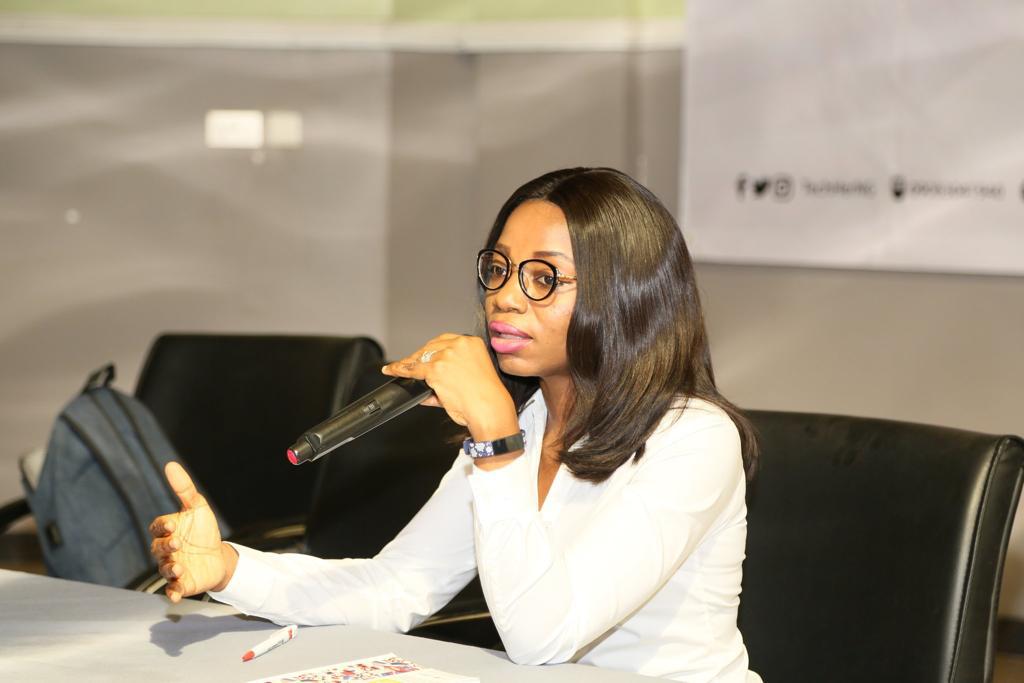
Lolade Nwanze: “I was mentored by the late Ogbonna Amadi, Vanguard’s Entertainment Editor, who chanced upon an interview I had left unattended to on a desktop. That relationship helped me to navigate the male-dominated newsroom and other politics even as he whipped my classroom writing into professional shape.” PC: Nwanze.
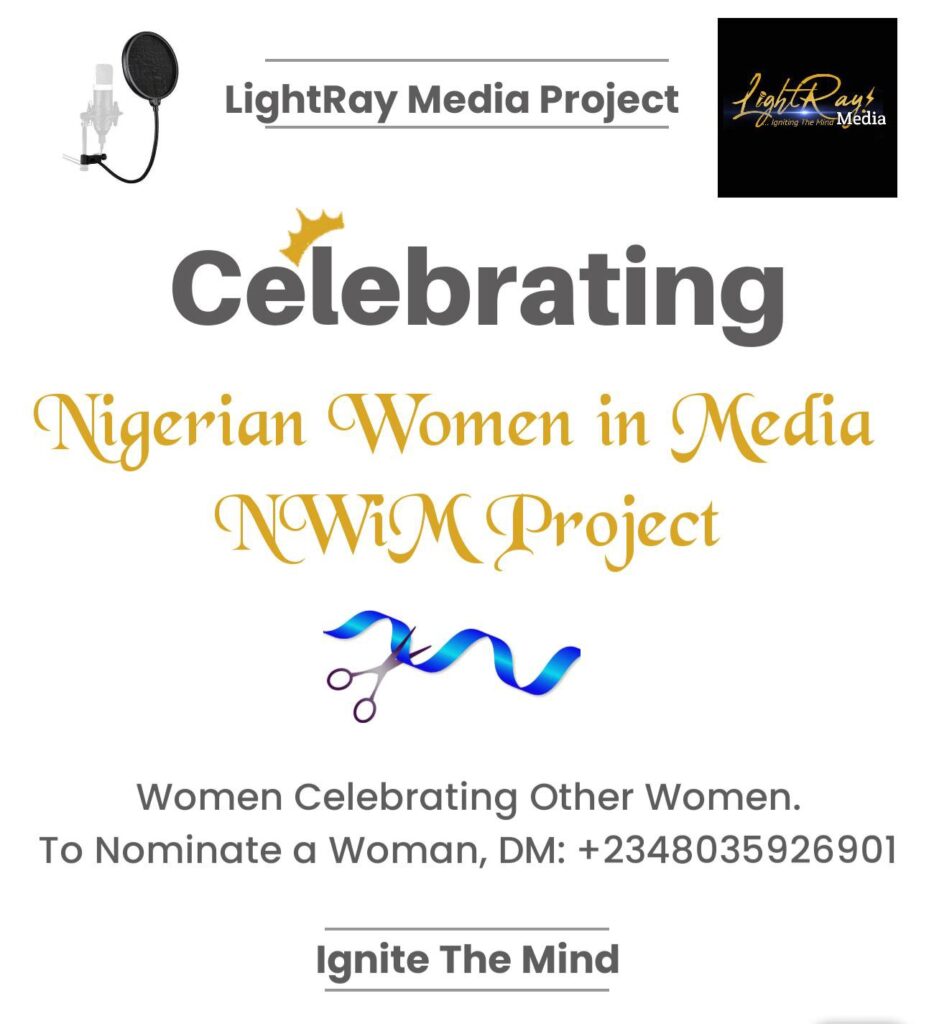
What training programmes or short courses have you attended, which you applied on the job that made the most impact for you?
Schooling at the NIJ, I was opportune to attend a lot of workshops that kindled the fire of journalism in me. I remember my first election reporting training in 2007. Between then and now, I’ve attended lots of trainings and short courses including Basic Presentation at the FRCN. In 2019 however, I attended a fact-checking workshop and I remember coming away feeling so empowered by the new skills and tools I had been introduced to. I came back to my newsroom and implemented same and it opened up a totally new vista in journalism for me and some of my reporters at the time who took it very seriously. It was months before a general election so the skill was very useful in fighting the surge of fake news that characterised that political season.
What suggestions will you give media owners or heads of media businesses to help boost morale, effectiveness, and reduce toxicity in the workplace?
Invest in people. Pay your employees well, have a clear organisational structure and be transparent with promotions, benefits and rewards. Create an environment where no one has an undue advantage. Invest in training, work tools and equipment and insist on up-to-date skill acquisition for your staff. Lastly, celebrate your workers when they win – journalism can be a thankless job; it’s high time we celebrated ourselves.
If you were to reimagine your career, what would you do differently, starting today?
I’d actively seek out more opportunities and take them early. How and what can women in media begin to do differently and better to hold their own space within the media industry?
I like that we are making room for ourselves these days and giving ourselves permission to take the bull by the horn and shine. We are no longer waiting to be platformed before making our voices heard – and all this in spite of the systemic clutter. Women are setting up our own broadcast and online outlets and holding the top roles at a lot of broadcast outlets. The balance I’m waiting to see is with the pay gap. We need to insist on the same rates payable to men in our role.
Why did you transition from Journalism into PR? What inspired that career direction?
I had worked in all the arms of Journalism as taught to me at school. PR was the only one left and I realised I had built just enough network and experience to make a success of it so I made the move. I know the media landscape, I’m proficient at storytelling using any medium; I understand messaging, reputation management and crisis communication. I’ve been relating with the public throughout my career so why not place a premium on my skill and get paid for it (we both smiled at this because it made a lot of sense!)
Tell us about some of your accomplishments that make you proud of yourself and continue to inspire you to do more?
I am blessed to have had the privilege of professionally practising every arm of mass communication I learnt – print, broadcast, digital, advertising and public relations. I recognise my privilege to have never needed to wait or scout for money from newsmakers to tell, change or kill their stories. After fourteen years of media practice, I made the transition into digital media and rose to become the female leading the largest digital newsroom in Nigeria at the time. My newsroom went on to win $250,000 from Google to build a TV studio for our YouTube channel. I did that and I’m proud.
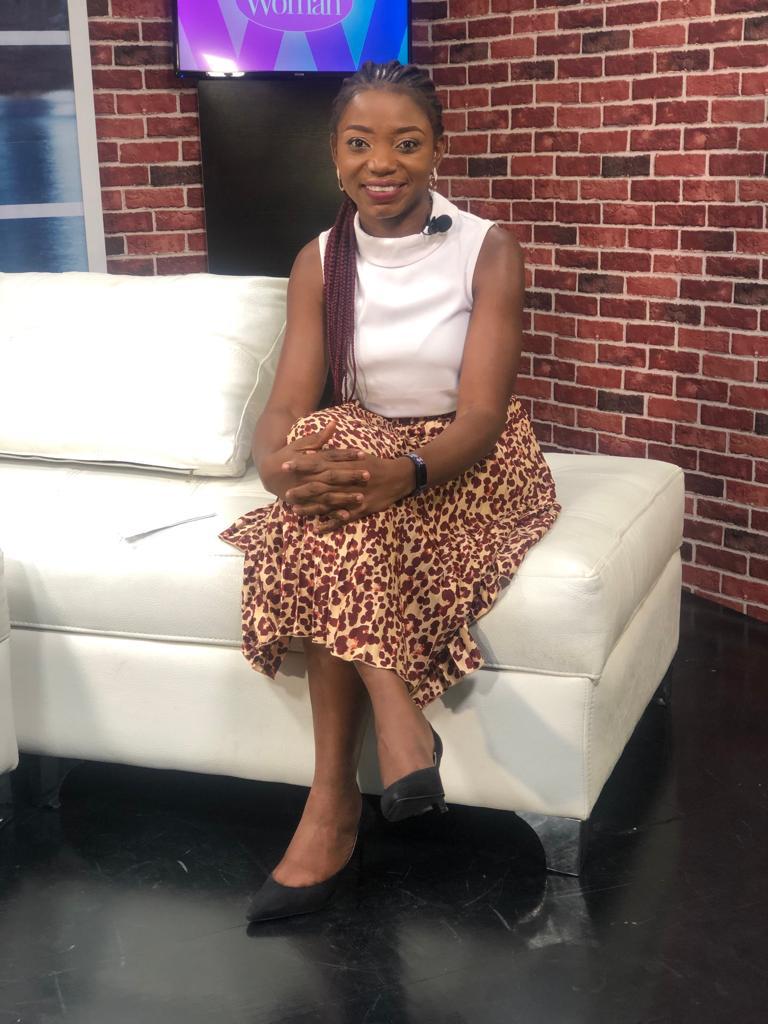
Lolade Nwanze: “My career began in Print and has taken me through Broadcasting, and Advertising and now I work in Public Relations in a continent different from the one I started. Those are the four disciplines you learn under Mass Communication and not a lot of people get the privilege of working at the top level in all four.” PC: Nwanze.
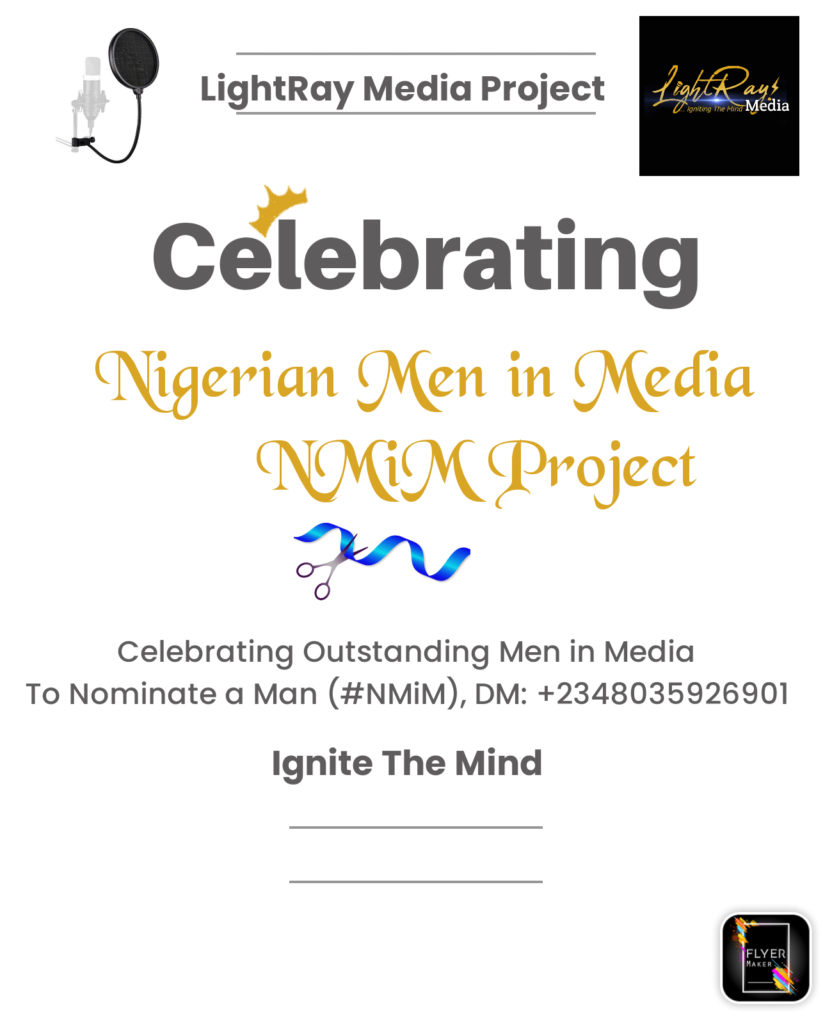
What tips in personal development, career pursuit, network strategies, and wealth creation would you advise other women in media, including men, to tap into?
There are loads of opportunities for journalists on the internet, take it. You will go farther quickly via collaborations with other journalists. Have self-worth and respect other peoples’ time and talent. Adapt quickly – today’s world of news is constantly changing, thanks to technology. Be very open-minded or you’ll get left behind.
Have you ever experienced work place harrasment or online threats, etc., while on the job? How did you handle those or what suggestions will you give to anyone to handle such incident effectively?
Before online threats, there were offline and mobile threats. I remember investigating my first story in a remote part of Lagos where two brothers had died in a dry well. The grieving family almost beat me up for asking questions and I ended up getting my story from neighbours in the streets. This other time I had a column where people could vote their top songs/video into the chart in the newspaper. People would spend their money texting insults if their faves didn’t make the charts. And this was when mobile texts cost N15 per 160 characters.
My advice would be to stay professional within the ambits of safety. Escalate to the responsible authorities where needed and be safe. In Nigeria, there are no journalist insurance packages or local employers that’d back one up 100% should harm come to one in the cause of the job. Be wise, be professional and be safe.
How do you balance your personal life, work, and family expectations?
Finding a balance is tough – frankly, I’m not sure a balance is possible. Identifying priorities per time and focusing on those without feeling guilty about others is the key to a successful life.
Which aspects give you the most challenges, and how were you able to overcome them?
I have tremendous support from my husband and he’s been my secret weapon. Working in PR means no two days are alike so one minute, everything is great and the next minute a client has a crisis. You want to spend more time with the children but you also need to track the crisis as it unfolds. You want to sleep but you also want to do the dishes. I have learnt that it is okay to leave plates in the sink overnight so I no longer feel guilty about them. If I were to give one piece of advice here, I’d say to delegate as much of domestic tasks as needed and marry a kind and empathetic person. You’ll be grateful you did.
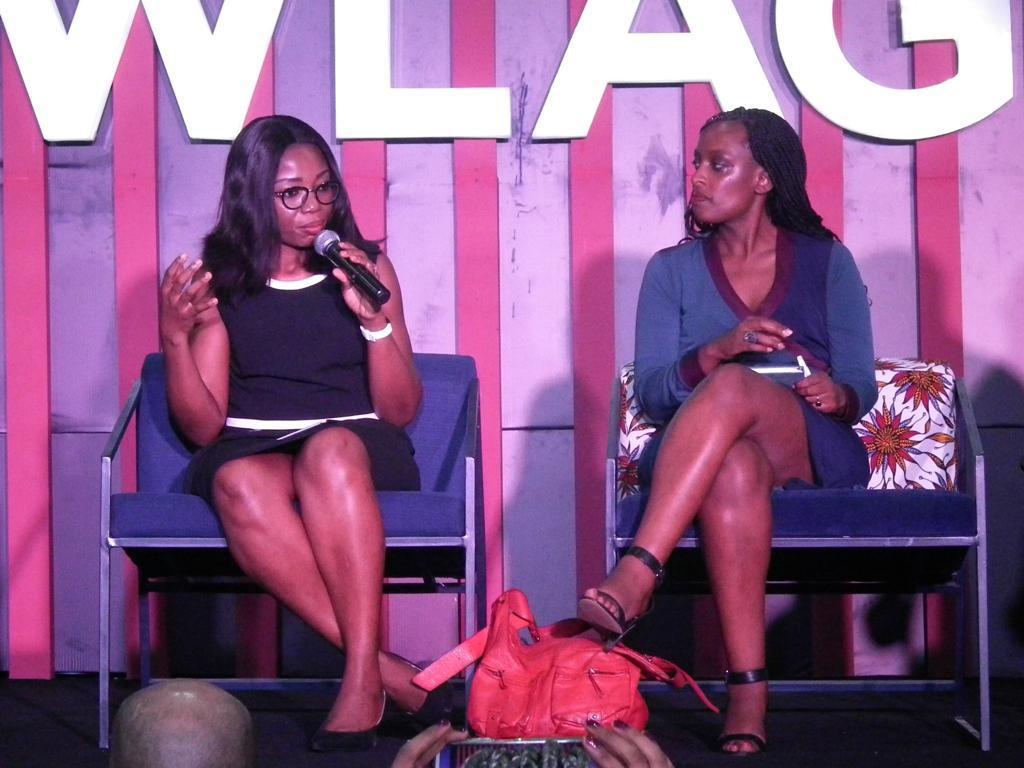
Lolade Nwanze: “I made the transition into digital media and rose to become the female leading the largest digital newsroom in Nigeria at the time. My newsroom went on to win $250,000 from Google to build a TV studio for our YouTube channel. I did that and I’m proud.” PC: Nwanze.
Tell us something about the media industry you would like to see change for the better?
And why is this change important? I want to see more young people love journalism enough to study it in school to learn the very basics, ethics and responsibility of a journalist before they shoot their first ‘content.’
In the next 3-5 years, where do you see yourself?
By God’s grace, I’ll be better settled and venturing into my first physical business.
When you say ‘physical business’, what does that mean?
I’ve always shied away from entrepreneurship just because of the sheer grit involved in running a successful business in Nigeria. I ran a service business from my laptop at the time but since moving to another continent, I have found myself entertaining the thought of owning a physical business. It’s never too late to start something new so I just might do it!
How do you think the Nigerian media can up its ante to compete more favourable with international media organisations?
We need to invest in ourselves – our newsroom technology, champion training in our newsrooms, and pay journalists well.
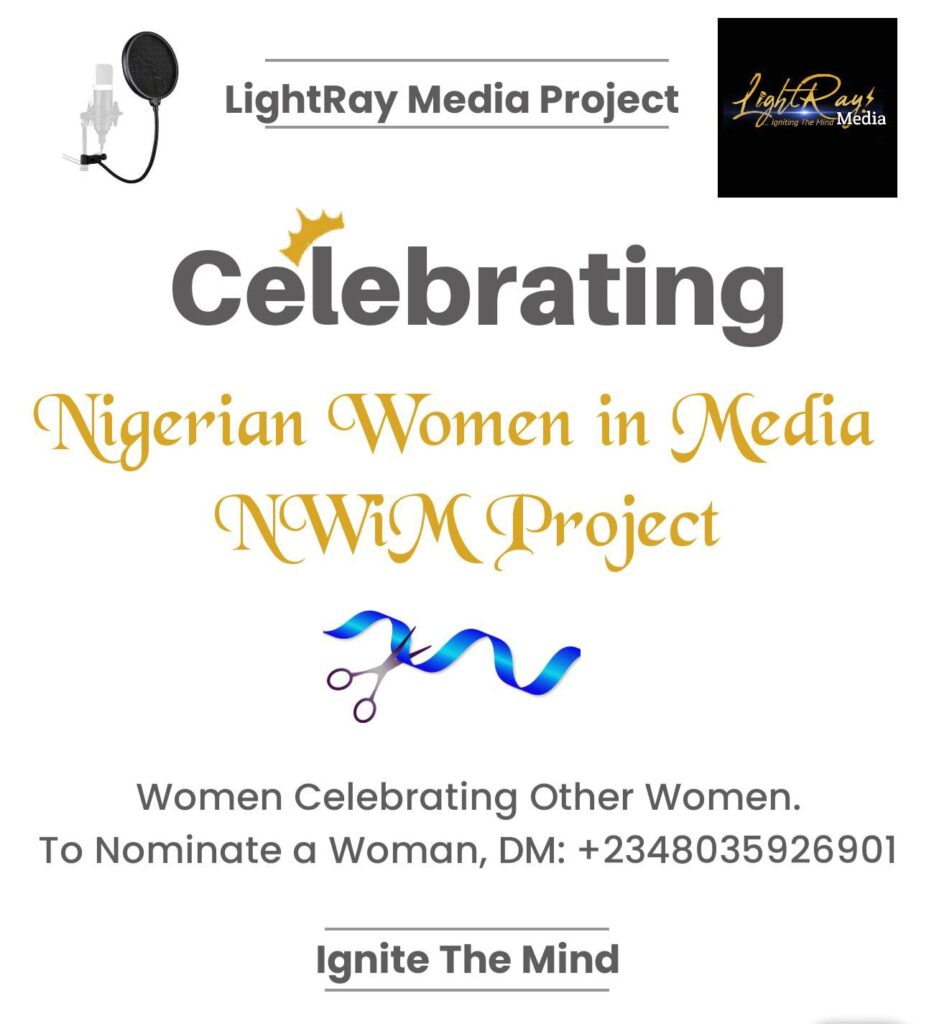
Lolade Nwanze: “The main challenges of today are with keeping up with technology while emphasizing to younger creators with a platform that journalism is serious business with principles and shouldn’t be trifled with. The democratisation of media means the gatekeeper’s role is almost non-existent hence a lot of ‘newcomers’ are not grounded.“





Comments